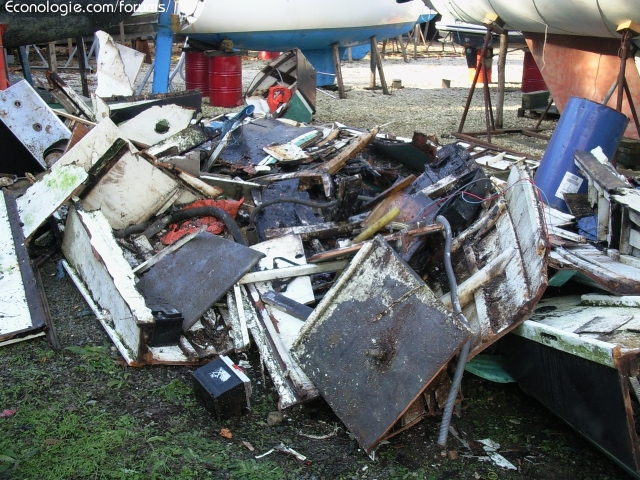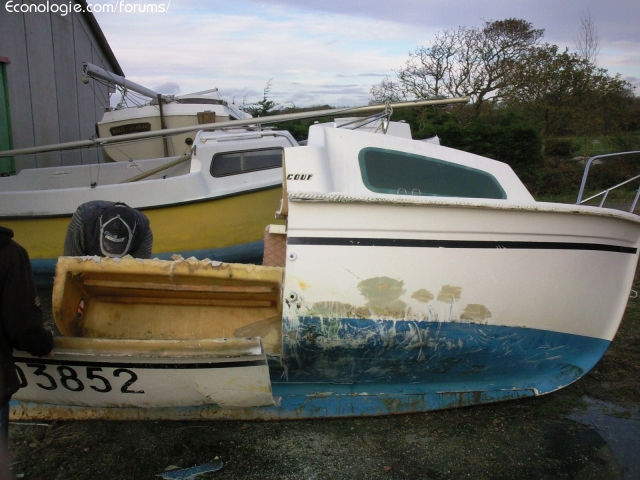Well I note with great pleasure that this branch is far from being saturated and go the same my project like the sea there I dare say so. Far from being able to treat the problem industrially for the moment, I remain persuaded that there is a way of doing something, I will now turn to the local authorities and see with them that my project can be supported.
I now turn to the means of treating PBHU residues, and the various proceed available for the de-construction and their costs of establishment, and yes because I am only small financial means, I say it because I come out of a long period of pain due to a big health concern.
I would like to take this opportunity to inform you of my need to bring together partners, my goal being to gain weight in front of the various players in the whole sector. Thank you all for listening to me, for participating so actively in this subject.
I make you share this photo below with great pleasure, I present to you my small boat of 5m27 of the 1970s built in polyester, for the story this boat was saved from destruction while it was in perfect condition, it does not he was missing only the sails.

Good sea and good wind.








